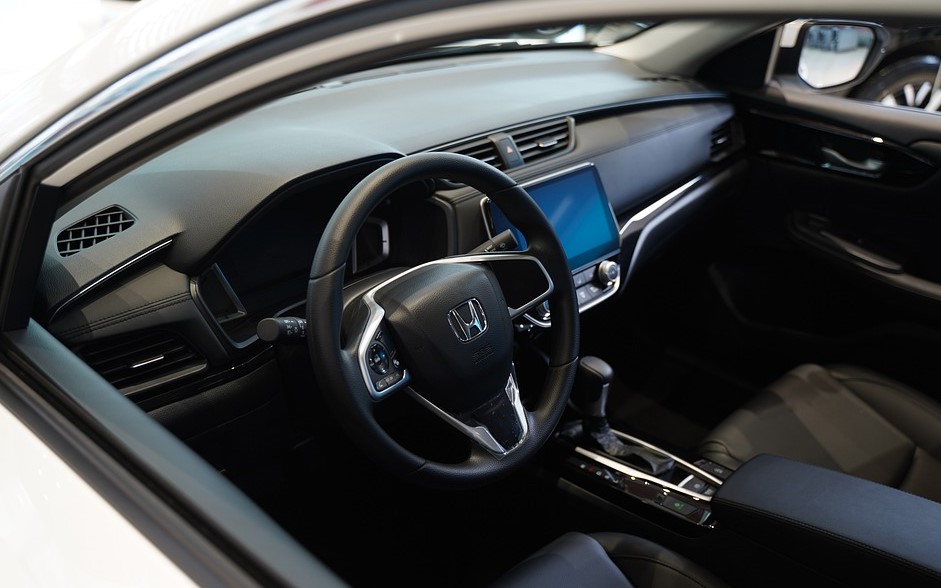 By B.N. Frank
By B.N. Frank
Last week the National Highway Traffic Safety Administration (NHTSA) started a second investigation on Tesla vehicles due to phantom braking reports. Apparently this is not just a Tesla problem.
From Ars Technica:
oh dear —
1.7 million Hondas are being investigated for phantom braking
NHTSA has received 278 complaints about inappropriate automatic emergency braking.
Last week, we reported that Tesla is the subject of a new investigation by the National Highway Traffic Safety Administration due to the company’s cars’ propensity to inappropriately activate their emergency braking function. This week, it’s Honda’s turn in the spotlight.
The NHTSA opened a preliminary investigation into the problem on February 21 after receiving 278 complaints about Hondas that suddenly decelerated despite nothing in their path.
The problem affects approximately 1.7 million cars in total, split between model year 2017-2019 CR-V crossovers and 2018-2019 Accord sedans. (It’s worth noting that when we reviewed the 2018 Honda Accord, we specifically called out the sensitivity of its forward-collision warning system, although we did not experience any automatic emergency brake activations.)
However, of the 278 complaints, the NHTSA says that only six of them alleged collisions with minor injuries, and no severe incidents have been reported.
Promoted Comments
- Jonathan M. Gitlin Automotive Editor
black_box wrote:
I’m getting a new car in a month with all these new “features,” so the stories posted here of fringe (?) brake applications are incredibly helpful. It’ll probably be less scary if you can understand, maybe even anticipate, the decision to brake.
It’s a curious situation, passengers/drivers might ultimately be more safe (even if that means a few more, but less severe collisions due to phantom maneuvers), but they will feel less at ease in the car?
OK, this evidently needs saying since I have had at least one misinformed email about it this morning. AEB unequivocally makes cars safer.
Here’s NHTSA on the topic at the end of 2020: https://www.nhtsa.gov/press-releases/nh … automakers
Quote:
Automatic emergency braking can help prevent or reduce the severity of crashes, which also reduces the risk of injury,” said NHTSA Deputy Administrator James Owens. “We applaud manufacturers for moving swiftly to include lifesaving technologies in new vehicles. Through this voluntary approach, we are seeing significantly faster deployment of automatic emergency braking than we would have through regulation, and that means lives are being saved and injuries are being avoided today.”
NHTSA estimates the agreement could make AEB standard on new cars three years faster than could be achieved through the regulatory process.
The success of the commitment can be seen through the data. There are about 5 million more vehicles manufactured a year with AEB than when this effort started. And while manufacturing of vehicles for sale in the United States declined by 23% this year due to the public health crisis, vehicles manufactured with AEB fell only 9%, illustrating that manufacturers did not falter on their efforts to increase safety through AEB
And here are some studies showing significant reductions in deaths, injuries, and crashes in the US (https://www.iihs.org/topics/bibliography/ref/2111), Europe (https://www.degruyter.com/document/doi/ … ml?lang=en), and China (https://www.mdpi.com/1660-4601/17/3/917 … &version=1).
The problem is not FCW or AEB itself, merely some implementations. And people should also note that the investigation does not apply to the new Accord or the new CR-V.
Activist Post reports regularly about unsafe technology. For more information, visit our archives.
Image: Pixabay
Become a Patron!
Or support us at SubscribeStar
Donate cryptocurrency HERE
Subscribe to Activist Post for truth, peace, and freedom news. Follow us on SoMee, Telegram, HIVE, Flote, Minds, MeWe, Twitter, Gab, What Really Happened and GETTR.
Provide, Protect and Profit from what’s coming! Get a free issue of Counter Markets today.
Honda Owners Complaints about “Phantom Braking” Lead to Federal Investigation